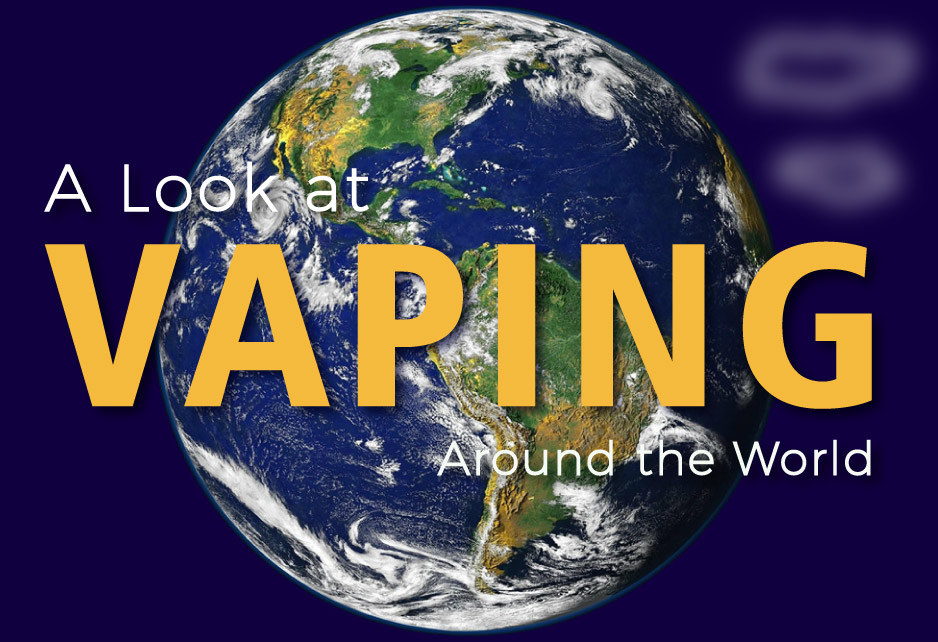
A Look at Vaping Around the World
While some governments and organizations have been treating vaping as a public health threat, others are embracing e-cigs for their potential to help people transition away from smoking. Many scientists and health officials have banded together behind a strategy designed to end the global smoking epidemic, and this concept is known as tobacco harm reduction.
We know that vaping is a superior alternative to smoking for several reasons. Vaping involves no combustion, smoke, or tar, and this alone ensures a number of benefits. Your e-cigarette or vape mod won’t make your clothes, car, or home smell bad, and you’ll also be able to enjoy it in more places. Vape juice also contains far fewer chemicals than tobacco smoke. Besides, the fact is that smoking-related illnesses kill millions of people each year. The same is not true of vaping.
Tobacco harm reduction is essentially the belief that people who smoke should be encouraged to try less dangerous activities instead. This may sound like a no-brainer, but misinformation and misconceptions around vaping have unfortunately led to many misguided rules and regulations. In some parts of the world, however, governments are encouraging harm reduction as an official policy.
Here’s a look at how this is being handled:
Vaping and harm reduction in the US
You may have seen the controversial claims put forth by “scientists” in the US: vaping causes popcorn lung; vaping is a gateway to smoking; vape juice contains formaldehyde. All these claims and others have been disproven time and time again, but this so-called science is funded by groups who wish to impose taxes on e-cigarettes while tobacco companies are allowed to profit off people who are addicted to smoking. Sadly, while the truth is that many people have depended on vaping to make it easier for them to quit smoking, US public health organizations have embraced junk science and made it less likely that any given American smoker will be willing to (or get the chance to) find out for themselves if vaping is right for them.
Vaping and harm reduction in the UK
In 2015, Public Health England shocked the medical world by studying all the available research and publishing its conclusion that vaping is 95% less harmful than smoking. A year later, the UK’s Royal College of Physicians claimed that vaping was likely to be beneficial to smokers and asked doctors to consider encouraging their patients who smoked to give vaping a try. In 2017, the UK had already seen a 3% decline in smoking. The number of smokers in the UK has continued to fall as the number of vapers increases.
Vaping and harm reduction in New Zealand
New Zealand has, happily, been quick to change its policies in response to the demand for e-cigs. While the sale of e-liquid that contains nicotine was illegal for years, this policy was changed in 2017 for the purpose of tobacco harm reduction. The New Zealand government has also started stopped funding anti-smoking groups that actively work against less-harmful alternatives to smoking, such as vaping.
Vaping and harm reduction in Australia
Australia is even stricter when it comes to vaping laws than the US. The government here is among those dragging their feet in harm reduction and even making it harder than ever to obtain e-cigs. Because Australia has classified nicotine as a poison, it’s illegal to buy or sell e-juice that contains it within the country. Individuals may import vape juice with nicotine for personal use (in most areas; in Queensland, it is illegal to even use e-cigs that contain nicotine). In 2017, the Therapeutic Goods Administration rejected a proposal to change its policies on nicotine; therefore, it remains impossible for Australian vapers to buy the supplies they need locally. Worst of all, this pushback against vaping comes as cigarettes remain on store shelves.

